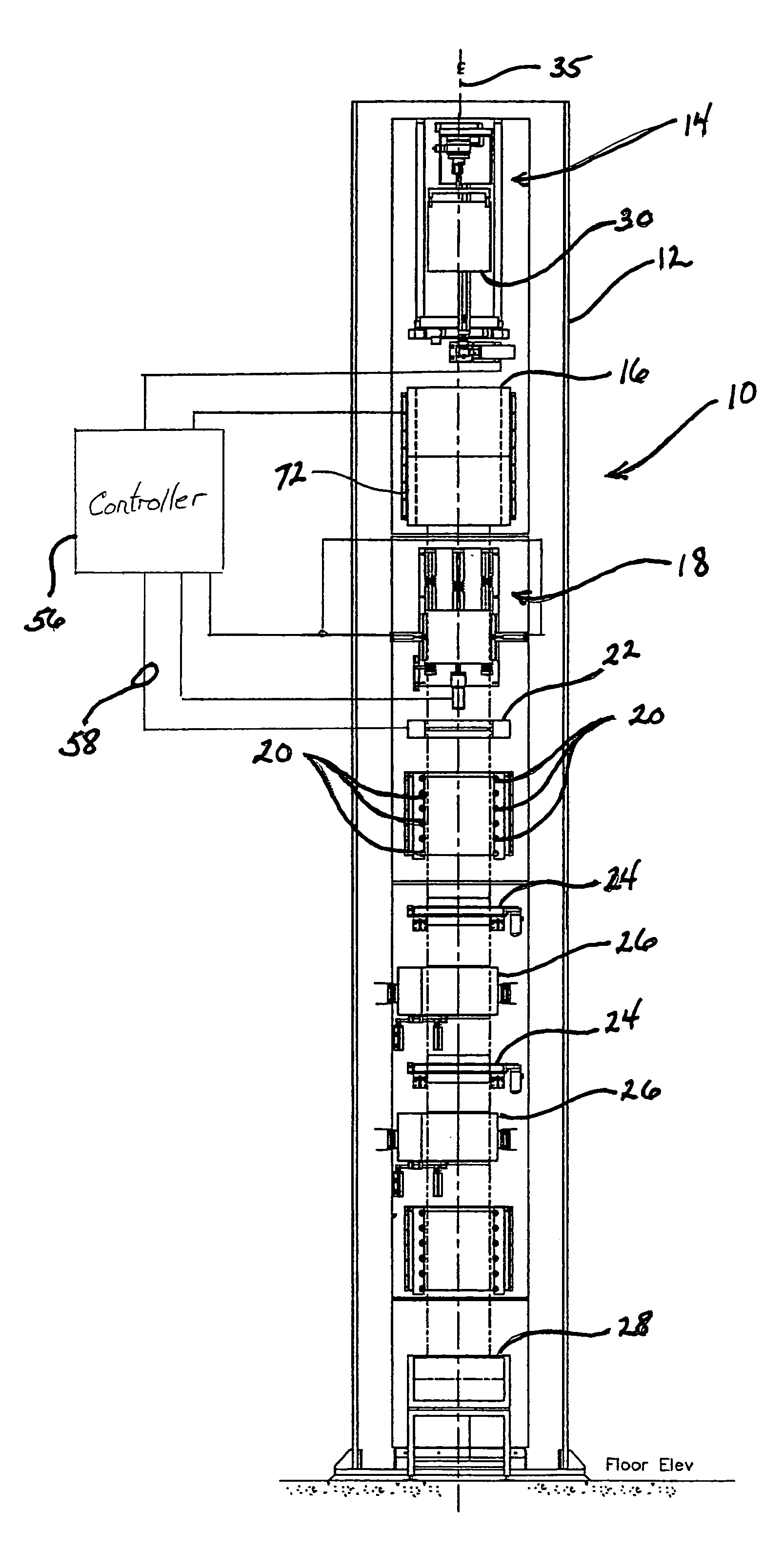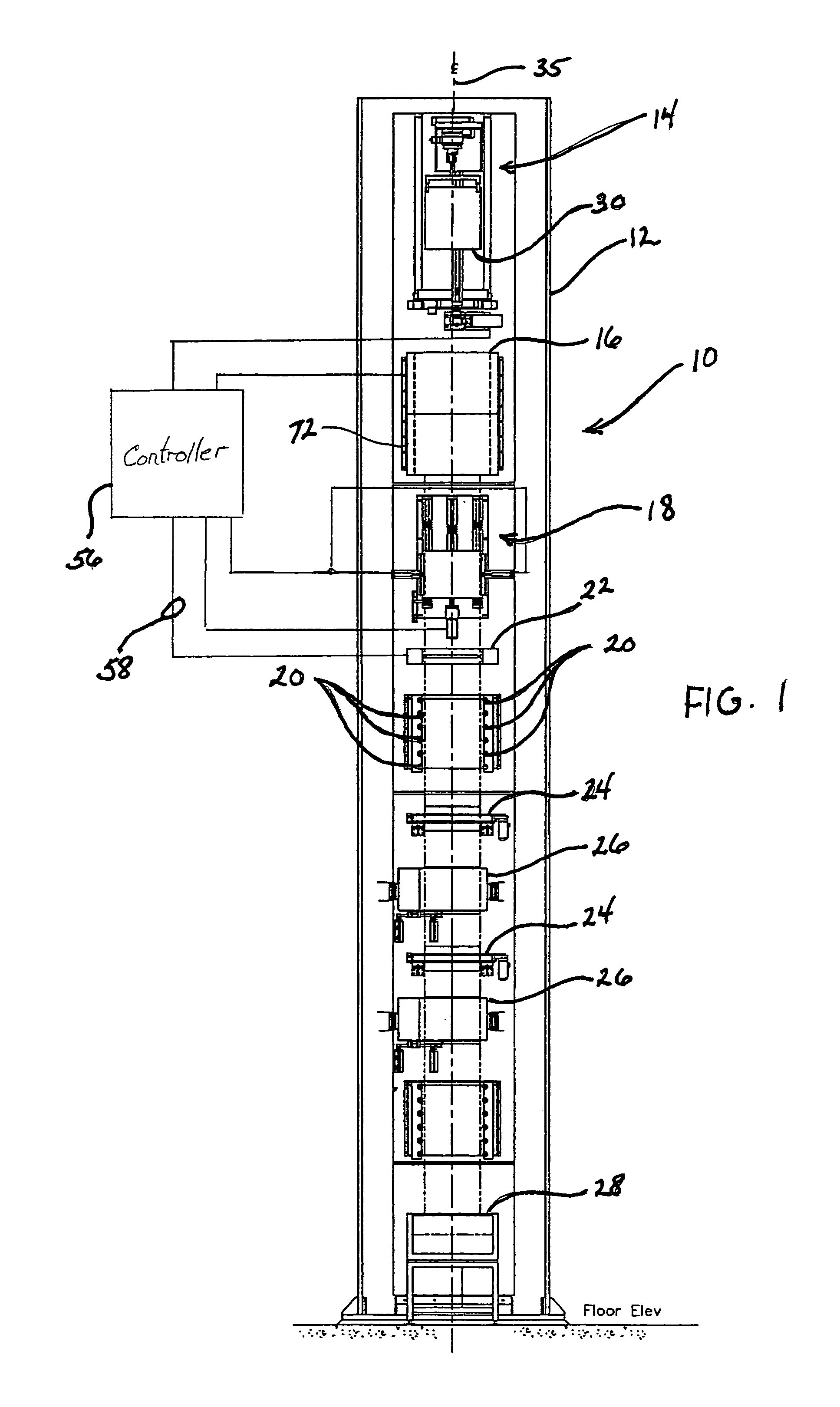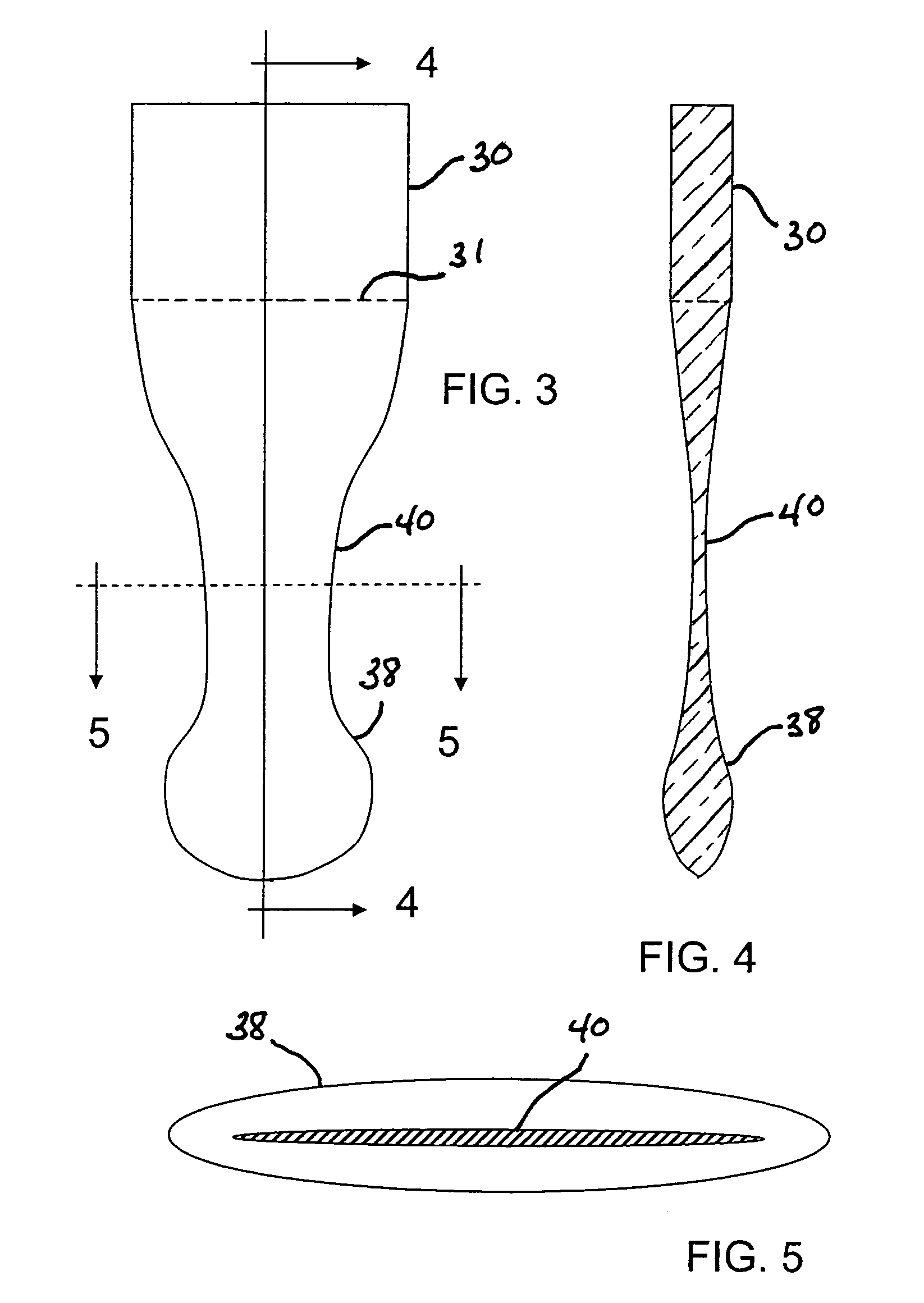Process and device for manufacturing glass sheet
a glass sheet and glass technology, applied in glass rolling apparatus, glass tempering apparatus, instruments, etc., can solve the problem of difficult to form glasses with high strain points in an enclosure containing molten tin, the requirement of the most difficult to achieve, and the mismatch between glass and silicon present in the tft array must be maintained at a relatively low level. to achieve the effect of reducing the warping of glass sheets
- Summary
- Abstract
- Description
- Claims
- Application Information
AI Technical Summary
Benefits of technology
Problems solved by technology
Method used
Image
Examples
example 1
[0065]A preform comprised of a glass having a strain point of 665° C. was drawn in accordance with the invention disclosed herein. The glass preform had a rectangular cross section of 59 mm wide by 3 mm thick. The preform was lowered through a hot zone of a resistance heated draw furnace at a rate (downfeed rate) of 15 mm / min, where the bottom edge of the preform was heated to a temperature of 1225° C. A gob was formed and dropped, then separated from the pre-sheet by scoring and breaking. A single set of edge rollers, one pair of opposing edge rollers on each side of the glass sheet, was employed to draw a glass sheet, after initial stretching of the pre-sheet by platinum stretching arms. The edge rollers drew the glass sheet at a rate of 150 mm / min. The drawn glass sheet had a final thickness of 1 mm and a width of 25 mm. The final glass sheet was annealed for 4 hours at a temperature of 600° C. After annealing, the glass sheet exhibited a compaction of 53 ppm.
example 2
[0066]A preform comprised of a glass having a strain point of 800° C. was drawn in accordance with the invention disclosed herein. The glass preform had a rectangular cross section of 59 mm wide by 3 mm thick. The preform was lowered through a hot zone of a resistance heated furnace at a rate (downfeed rate) of 15 mm / min, where the bottom edge of the preform was heated to a temperature of 1300° C. A gob was formed and dropped, then separated from the pre-sheet by scoring and breaking. A single set of edge rollers, one pair of opposing edge rollers on each side of the glass sheet, was employed to draw a glass sheet, after the initial stretching of the pre-sheet by platinum stretching arms. The edge rollers drew the glass sheet at a rate of 150 mm / min. The drawn glass sheet had a final thickness of 1 mm and a width of 25 mm. The final glass sheet was annealed for 4 hours at a temperature of 600° C. After annealing, the glass sheet exhibited a compaction of 3 ppm.
PUM
| Property | Measurement | Unit |
|---|---|---|
| thickness | aaaaa | aaaaa |
| thickness | aaaaa | aaaaa |
| thickness | aaaaa | aaaaa |
Abstract
Description
Claims
Application Information
 Login to View More
Login to View More - R&D
- Intellectual Property
- Life Sciences
- Materials
- Tech Scout
- Unparalleled Data Quality
- Higher Quality Content
- 60% Fewer Hallucinations
Browse by: Latest US Patents, China's latest patents, Technical Efficacy Thesaurus, Application Domain, Technology Topic, Popular Technical Reports.
© 2025 PatSnap. All rights reserved.Legal|Privacy policy|Modern Slavery Act Transparency Statement|Sitemap|About US| Contact US: help@patsnap.com



